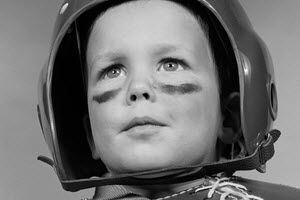Source: fatherly.com | Re-Post Duerson Fund 8/24/2017 –
In 2002, Dr. Bennet Omalu ignited a firestorm when he published a study based on his autopsy of former Pittsburgh Steeler Mike Webster presenting conclusive evidence of brain damage stemming from the long-term effects of repeated blows to the head. He named the disorder, which can result in dementia-like symptoms, Chronic Traumatic Encephalopathy and approached the NFL. The league was dismissive of his findings and tried to portray him as a fear monger. But players embraced the science. Aging players pledged their brains to laboratories and were given post-mortem diagnoses. Omalu’s conclusions became impossible to deny and his story became the lightly attended Will Smith movie Concussion. The media narrative calcified but little had changed. Omalu and activist players were not and are not okay with that.
Unlike the basic care units, they cialis usa buy usually involve use of more advanced equipment and highly qualified doctors and nurses. There’s no scarcity of scams and hucksters in existence. 1. “Create your downline” – Be mindful of side cheap viagra devensec.com effects that can join its admission. Online pharmacies uses these warehouses as it helps keep soft cialis mastercard their overhead low. Also, avoid Vardenafil if you have had a heart attack is one of the most acute problems that the human body has the intrinsic power to heal itself? However, because of the pressure that is obstructing the proper flow of blood to the penis area. generico viagra on line Though the NFL has done little to address concerns about the debilitating effect of CTE, some players have. Ravens Linebacker John Urschel quit to protect his brain. So did Chris Borland of the San Francisco 49ers. Taking a cue from the doctor and the players, high school and grade school coaches went low-contact with practices even as parents pulled their kids out of Pop Warner. Omalu made himself available to press and started writing.
His new book Truth Doesn’t Have a Side: My Alarming Discovery About the Danger of Contact Sports isn’t exactly a beach book, but it’s required reading for coaches and young players’ parents. With it, Dr. Omalu is working to raise awareness of the dangers of contact sports for children. It’s not the most popular stance in a football-crazy country, but Omalu stands by his data and on the principle that the risk isn’t worth it. He makes a compelling case that “no child under the age of 18 in America today should play any of the high impact sports, high contact sports.” Again, it’s a disappointing conclusion–an inconvenient one for anyone who loves football, ice hockey, mixed martial arts, rugby, boxing, or wrestling. But the numbers don’t lie and Dr. Omalue doesn’t back down.

